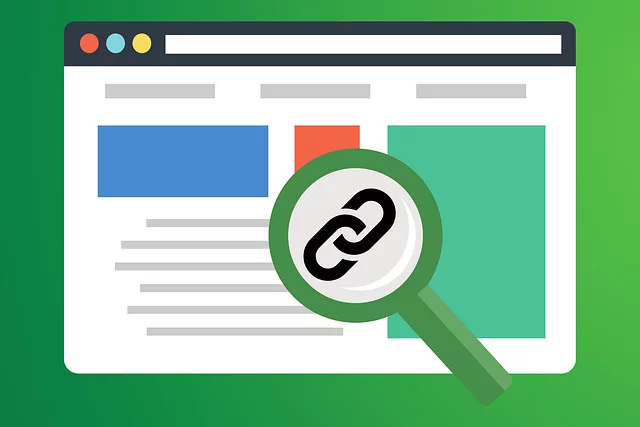Affiliate marketing remains one of the most rewarding online business models for individuals seeking time freedom, financial growth, and entrepreneurial autonomy. Yet as affiliate marketing grows in popularity, so does the competition. Success in this space is no longer just about finding a good product and placing your link; it’s about creating a compelling experience that engages users. It is about visibility, authority, and trust, which heavily depend on your presence in search engine results.
Backlinks, often referred to as inbound or incoming links, are crucial in all three. For affiliate marketers who rely on search engine traffic, backlinks are more than a ranking factor. They are a long-term investment in the credibility and reach of your website. When used correctly, backlinks can significantly enhance traffic to your affiliate content, improve your conversion opportunities, and elevate your standing in the eyes of both Google and your audience.
If you are promoting a platform like Wealthy Affiliate, understanding the power of backlinks is especially important. Wealthy Affiliate is a widely recognized platform, which means many others are competing for attention around the exact keywords and audiences. The quality and quantity of backlinks to your site can determine whether your content stands out or gets lost in the crowd.
This article will examine how backlinks function, their importance for generating affiliate traffic, strategies for acquiring them ethically, and their role in achieving sustainable online success.
What Are Backlinks And Why Do They Matter?
A backlink is a hyperlink on one website that leads to another. For example, if a popular blog references your Wealthy Affiliate review and includes a link, that is a backlink to your page. In the context of SEO, backlinks are like votes of confidence. They signal to search engines that your content is trustworthy, valuable, and worth promoting to others.
Google’s algorithm uses backlinks as one of its primary ranking factors. A page with high-quality backlinks is more likely to rank higher in search results, which leads to more organic traffic. But not all backlinks are created equal. Links from authoritative, relevant websites carry far more weight than those from low-quality or unrelated domains.
For affiliate marketers, this has a direct impact on your earnings. Better rankings mean more people discover your content, more eyes see your affiliate links, and more clicks convert into commissions. Where they are, and recommend products in a way that feels natural and authentic.


The Connection Between Backlinks And Affiliate Marketing
The affiliate marketing model depends heavily on traffic. Without steady visitors to your site, no one will see your content, click your links, or sign up for the products and services you recommend. While paid traffic and social media can be helpful, organic search remains one of the most potent and consistent sources of qualified leads.
This is where backlinks come in.
Backlinks support affiliate traffic generation in two significant ways. First, they increase your site’s authority, which improves your rankings in search engines. Second, they bring direct referral traffic. When someone clicks a link to your content from another blog, forum, or news outlet, that visitor becomes a potential lead.
Moreover, backlinks contribute to brand recognition. If several reputable sources mention your affiliate site or content, readers see you as a trusted voice. This increases the likelihood that they will click on your affiliate links, trust your recommendations, and return for more content.
Backlinks also encourage deeper indexing. When your pages receive links from other sources, Google’s bots are more likely to crawl them frequently and index them quickly. This ensures that your new content gets discovered and ranked more quickly.
The Qualities Of Effective Backlinks
Not all backlinks help your affiliate site. Sometimes, low-quality or spammy backlinks can do more harm than good. Understanding the difference between helpful and harmful links is key to a successful SEO strategy.
Effective backlinks generally meet several criteria:
Relevance: The linking site should be topically related to yours. If you are writing about affiliate marketing or reviewing Wealthy Affiliate, a backlink from a digital marketing blog is far more beneficial than a cooking website.
Authority: Links from well-established domains carry more weight. A backlink from a recognized industry blog, a news outlet, or a high-ranking educational site is a powerful endorsement in Google’s eyes.
Anchor Text: This refers to the clickable text of the backlink. Descriptive anchor text that includes keywords or context (like “affiliate marketing guide” or “Wealthy Affiliate review”) is more valuable than generic anchors like “click here.”
Dofollow vs Nofollow: A “dofollow” backlink passes SEO authority to your site. While “nofollow” links do not pass authority, they can still bring valuable traffic. A balanced link profile with both types looks more natural to search engines.
Placement: Backlinks embedded within the content body (contextual links) carry more value than those placed in footers or sidebars.
Focusing on these qualities can ensure that your backlink profile strengthens your SEO efforts rather than undermines them.

How To Earn Quality Backlinks For Affiliate Content
One of the challenges affiliate marketers face is that some webmasters hesitate to link to commercial or promotional content. However, some strategies can help you earn backlinks while focusing on affiliate topics.
1. Create Valuable, Link-Worthy Content
This remains the most sustainable approach. People link to content that provides value. This could be an in-depth tutorial, a detailed case study, original research, or a personal success story. For example, posts like “How I Built a Full-Time Income With Wealthy Affiliate in One Year” can attract links from bloggers, forums, or publications covering online entrepreneurship.
2. Guest Blogging
Writing articles for other websites in your niche allows you to gain exposure, establish authority, and include a backlink to your site. Ensure your guest posts are relevant and include a natural link to helpful content on your blog, rather than promoting a direct affiliate link.
3. Resource Pages
Many websites have resource or tools pages that link to helpful content for their audience. If you create something unique, such as a “Beginner’s Toolkit for Affiliate Marketers,” you can be included on those pages.
4. HARO (Help a Reporter Out)
This platform connects journalists with sources. You can earn high-authority backlinks from reputable sites by responding to media inquiries. Share your experience as an affiliate marketer or your insights on digital trends. If your response is used, you often receive a backlink.
5. Collaborate With Influencers
Build relationships with content creators in your niche. Offer to collaborate on interviews, roundups, or expert opinion pieces. Many of these formats include backlinks to your site, helping you reach a broader audience.
6. Broken Link Building
Identify broken links on websites that previously linked to content similar to yours. Reach out and suggest a replacement page for your page. Tools like Ahrefs and Check My Links can help you identify these opportunities.
These strategies require effort and patience, but they lead to backlinks that support both SEO and affiliate performance.
Common Backlink Mistakes Affiliate Marketers Should Avoid
As with any marketing strategy, mistakes can hinder your progress or even cause penalties from search engines. Here are some common backlink pitfalls to avoid:
Buying Low-Quality Links: Services that promise hundreds of backlinks for a low price often use shady networks that can trigger algorithmic penalties. Focus on earning links organically or through legitimate outreach.
Over-Optimized Anchor Text: Repeatedly using the exact keyword-rich anchor text can make your link profile look unnatural. Diversify your anchors to include branded terms, variations, and generic phrases.
Relying on a Single Source: If most of your backlinks originate from a single domain or strategy, it may signal manipulation. Aim for a diverse range of referring sites and link-building methods.
Ignoring Link Relevance: Irrelevant backlinks may not directly harm your rankings, but they will not benefit you either. Stick to sources and topics that align with your niche.
Neglecting Internal Links: While external backlinks are essential, internal linking also plays a vital role in SEO. Linking from one blog post to another helps with crawlability and user experience.
Avoiding these errors will help you maintain a healthy, effective backlink profile that enhances your affiliate performance.

Backlinks And Wealthy Affiliate: A Case For Long-Term Strategy
Wealthy Affiliate is a platform focused on sustainable SEO and ethical affiliate marketing. Its training discourages black-hat tactics and encourages content-driven growth. As a member and promoter of Wealthy Affiliate, building a backlink strategy that aligns with this philosophy improves your rankings and reinforces your brand integrity.
Imagine writing a long-form post about your journey with Wealthy Affiliate, complete with traffic stats, screenshots, and lessons learned. This type of authentic content is far more likely to earn backlinks than a generic sales page. It shows transparency, offers value, and builds trust with readers and search engines.
You can also participate in community forums, comment sections, and social media groups where Wealthy Affiliate is discussed. Contributing meaningfully to these spaces may lead to organic mentions and links to your content over time.
Even linking to other credible Wealthy Affiliate content can support relationship-building, which may lead to reciprocal mentions and future collaboration. Backlinks do not always come from cold outreach. They often grow out of trust and connection.
Monitoring Your Backlink Progress
Tracking your backlink profile is essential for understanding what works and identifying issues early. Utilize tools such as Ahrefs, Moz, SEMrush, or Google Search Console to track new and lost links, referring domains, and anchor text distribution.
Take immediate action if you notice a spike in suspicious backlinks or receive notification of manual penalties. You can disavow harmful links using Google’s Disavow Tool, though this should be done cautiously and only when necessary.
Celebrate wins, too. If a primary site links to your article or you see a traffic spike from a new backlink, review what led to it and replicate the process. Backlinks are a long-term game, but consistency leads to growth.
Backlinks are not just technical SEO elements. They are relationship indicators. They represent trust, value, and relevance in the eyes of both readers and search engines. For affiliate marketers, they play a pivotal role in generating traffic, improving rankings, and increasing conversions.
As competition intensifies and algorithms become increasingly sophisticated, having a robust backlink strategy sets you apart. It turns your content into a magnet for organic traffic, positioning your affiliate business for long-term success.
Whether promoting Wealthy Affiliate or building authority in another niche, remember this: backlinks are earned, not forced. By creating content that genuinely helps others and reaching out with authenticity, you build a foundation that search engines and audiences alike respect and reward.

